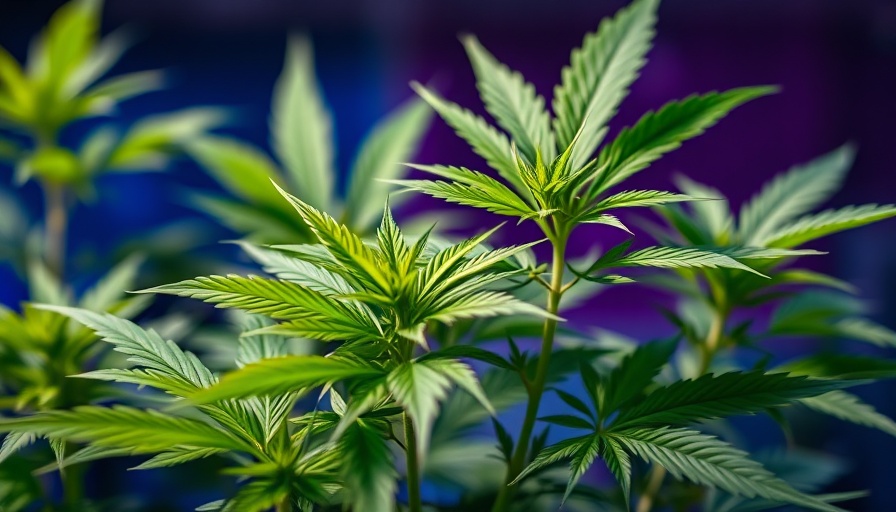
Understanding the THC Ban and Its Implications
The recent passage of Senate Bill 3 in Texas, which seeks to ban the sale of hemp-derived THC products, marks a significant turning point for a rapidly growing industry that has become a staple for many retailers. What began as a new economic opportunity following the 2018 Farm Bill, which legalized hemp, has now been labeled by state officials as a potential public health crisis. This legislation is not only polarizing but poses a serious question: what could the consequences be for local economies?
A Booming Industry at Risk
The Texas hemp market has boomed since legalization, with estimates suggesting sales range from $3 billion to $8 billion. Thousands of retail licenses have been issued, allowing businesses across the state—including 130 in the Austin metro area—to sell consumable hemp products. Retailers like Eddie Velez, president of the Texas Hemp Coalition, express dire concerns, stating that an outright ban would decimate their inventory and devastate the livelihoods of those who rely on this industry. “Removing THC products, that’s going to be 90% of my store,” Velez notes, emphasizing the tangible impact of these legislative changes.
Divided Perspectives on Regulation vs. Ban
Not all stakeholders support the ban. Many business owners advocate for regulation rather than prohibition. They propose measures such as age restrictions for buyers and improved labeling practices to prevent the appeal of products to children. This nuanced position suggests that while there are valid concerns regarding public health, creating regulations could help bridge the interests of public safety and economic viability. Advocates argue that a total ban will likely push consumers toward unregulated, illicit markets, potentially compounding the very issues lawmakers are aiming to curtail.
The Context of Public Health Claims
In defense of the bill, Lt. Gov. Dan Patrick has labeled hemp-derived THC products as a "poison in our public." This strong rhetoric raises questions about the actual health impacts of these products compared to their benefits, especially for consumers who regard them as alternatives to traditional pharmaceuticals. The conversation surrounding THC products needs to be expanded beyond fear-based narratives to include factual and fair discussions about their uses and effects. By juxtaposing public health claims with economic realities, the implications of this bill could become clearer.
Future Trends and Legislative Impact
As Senate Bill 3 moves to the House, the future of hemp-derived products in Texas hangs in the balance. The potential fallout could reverberate through a variety of sectors, including retail, agriculture, and health care. Legislation that inadvertently creates a black market for these products may heighten the challenges local law enforcement faces in regulating substance use. As a result, understanding the economic impacts as well as consumer sentiment surrounding this debate will be crucial for any productive outcome.
What’s Next for San Antonio Businesses?
The local business community in San Antonio will want to pay close attention to the developments surrounding this bill. With many businesses heavily investing in hemp-derived products to diversify their offerings and ease the reliance on more traditional goods, a ban would not only impact their financial health but also their employees. Those who rely on these jobs must consider how to prepare for possible transitions. Educational resources and support for affected businesses will be necessary to navigate these changes as the legislative landscape evolves.
Engaging with Elected Officials
Local businesses are encouraged to voice their concerns to elected officials. Engaging in dialogue can shape how these laws are implemented and offer a platform for industry voices to be heard. Consideration of a mixed approach that includes regulation rather than outright prohibition could lead to an outcome that respects both public health concerns and economic stability.
As this bill makes its way through the legislative process, the stakes have never been higher for stakeholders in the Texas hemp industry. Now is the time to get informed, get involved, and ensure that the future of local businesses is shaped by rational discussion and collective understanding.
Stay informed about local developments and understand how this may impact the broader economic landscape. Follow the updates in the San Antonio Business Journal for the latest insights.
 Add Element
Add Element  Add Row
Add Row 



 Add Row
Add Row  Add
Add 


Write A Comment